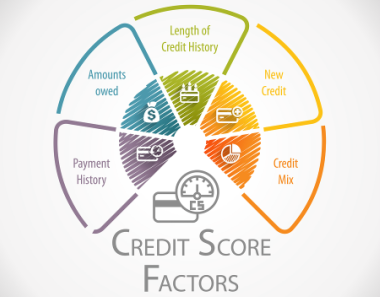
Student loan debt is becoming almost commonplace in America. According to the Student Loan Report, approximately 70 percent of college students in 2018 have student loans, with an average of $27,975 in debt per borrower. I’m not going to go further into the statistics; the more important topic to discuss is the impact that these loans have on each and every borrower, including the potentially surprising outcome of paying off a loan.
Student Loans and Credit Score: The Direct Relationship
A student loan – or any loan, for that matter – directly affects your credit score based on the loan amount, the terms of the loan and payments made. The good news is that taking out student loans usually increases a borrower’s credit score – at least in the short term. The reason is that Fair Isaac Corporation (FICO, the most widely used credit score provider in the U.S.), is believed to view installment loans more favorably than revolving debt. The expectation in a student loan is that the balance will start high and be paid down to zero, whereas credit card debt starts with zero, rises and fluctuates. All student loans, whether private or federal, are treated the same way in your credit score.
Credit Benefits of Student Loans
Whether a student loan helps or hurts your credit is largely dependent on if you make payments in full, on time, all the time. Payment history accounts for 35 percent of your FICO score. While a late payment or two won’t destroy your credit beyond repair, it can certainly cause a noticeable plunge. A single missed payment could potentially lower your credit score by up to 100 points.
When managed properly, student loans can be advantageous in helping to build your credit history. We’re certainly not saying you should use this as a strategy to improve your credit score; what we mean is that if you require financial assistance to attend school and are responsible with repayment, student loans are not the credit killers you might fear them to be. Your credit score itself might be a little confusing to dissect, but the concept of building credit is pretty straightforward: Lenders like when borrowers have a track record of on-time payments, which leads to other lenders approving loans, which leads to rising credit.
Additionally, having student loans along with other types of loans, such as an auto loan or a mortgage, can positively impact your credit mix. In a credit report, the credit mix represents the different types of accounts the consumer has open. Credit mix only accounts for 10 percent of your FICO score – a much smaller portion than payment history, but still notable.
Credit Drawbacks of Student Loans
If student loan payments are inconsistent and/or late, they will quickly start to weigh down your credit score. Remember, payment history alone determines 35 percent of your score. Late payments and delinquencies can be very difficult to overcome. Defaulting, of course, is even worse. Having high student loan balances can also make it more difficult to qualify for other types of loans that consider debt-to-income ratio.
One of the lesser-known ways that student loans can negatively affect credit is when a borrower shops around for private loans. This generates many credit inquiries from different lenders, which can take off a few points each from your credit score. It is only a short-term impact, however, and is not considered to be a major concern.
I Paid Off a Loan…And My Credit Score Went Down?
Now, let’s talk about the likely reason you landed on this article. Paying off loans is a good thing, so you would think that doing so would result in a pat on the back and a bump up in your credit score – but that’s not always the case. Oftentimes, borrowers see their credit scores drop after paying off a loan.
This can happen for several reasons:
First, closing a loan account shifts the dynamics of the borrower’s financial picture. If there is not a lot of credit history outside of the loan that has now been paid off, the borrower loses their main driver of credit history. Even with all of those on-time payments on the loan, the credit history appears shorter. A shorter credit history typically means a lower credit score.
Second, paying off a loan can result in a lower credit score if the borrower is left with primarily revolving debt such as credit cards. Remember that X factor, credit mix, that we mentioned? This is where it can really make a difference.
Lastly, if you had any missed payments, but then managed to completely repay the loan shortly after, you could be seeing the two impacts above along with the previous (and potentially significant) impacts of the missed payments.
Paying off a student loan will affect each borrower differently. It is very common to see a temporary dip in your credit score after closing a loan account, so don’t panic if this happens to you. Repaying a loan is always an accomplishment that improves your overall financial standing and future.
Student Loan Assistance
You will notice that we specifically stayed away from all of the gloom-and-doom accounts of student loans in America. That’s because we believe in focusing our energy on guiding students and graduates to better finances through nonprofit student loan counseling to help you find and follow your path to becoming debt-free.
About the author:
Melinda Opperman is an exceptional educator who lives and breathes the creation and implementation of innovate ways to motivate and educate community members and students about financial literacy. Melinda joined credit.org in 2003 and has over 19 years experience in the industry. Credit.org is a nonprofit financial counseling agency specializing in Debt Management Plans and helping people get out of debt.

